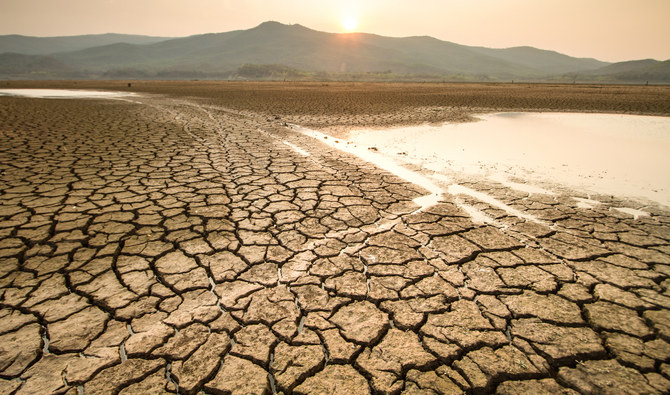WASHINGTON: Arabs believe the climate change-related threat to water resources is the biggest environmental issue facing the region and its people.
This was a key finding of the latest Arab Barometer Report on the attitudes in 12 Arab countries about the environment, which was published on Thursday.
The Arab Barometer is a research network that gathers opinion and offers insights into the social, political and economic attitudes of citizens across the region.
Its latest survey on the environment found that the majority of the people it polled were concerned about the availability of drinking water, the pollution of water sources, and the quality of the air in their communities.
Tunisia had the highest proportion of people who considered availability and quality of water the biggest environmental challenge facing their country, at 60 percent, followed by Algeria with 50 percent, and Iraq, Palestine and Libya with 47 percent.
The findings are part of the seventh round of polling by Arab Barometer, which has been tracking the views of people in the Middle East and North Africa since 2006. It describes itself as the largest publicly available survey of the opinions and attitudes of citizens across the region.
For its latest report, it interviewed 26,000 citizens between October 2021 and July 2022 in 12 countries that represent about 80 percent of the Arab world: Algeria, Tunisia, Libya, Morocco, Mauritania, Jordan, Lebanon, Palestine, Iraq, Egypt, Sudan and Kuwait. In addition to the environment, other parts of the survey covered political, social and economic issues.
Issues related to waste management ranked second among the key environmental issues people in region are most concerned about. Recycling is already an important environmental-protection activity in many countries and the survey found that many people in the region already recycle their waste, but that they do so mostly for “cost-saving” benefits or “convenience, rather than to protect the environment.”
Educational background tended to affect people’s views on environmental issues such as climate change, air quality, pollution and trash, with those who were better-educated expressing greater concern about them.
In addition, issues related to climate change were more of a concern among people living in rural location than those in urban areas.
Aside from the availability and quality of water and its quality, other attitudes toward the environment varied.
A previous survey, in October 2020, found that less than than seven percent of citizens in Arab countries believed that reducing pollution should be the top priority of government spending in the coming year. In research carried out in the spring of 2021, less than nine percent said that foreign aid should be used to address environmental concerns.
In the latest poll, less than five percent of people surveyed in the majority of Arab countries said foreign aid donated to their nations should be used to tackle climate change and environmental challenges. In Egypt, Jordan and Palestine, the figure was as low as 1 percent.
Yet the research also found that citizens of the region blame themselves for not being proactive enough on environmental issues, and their governments for failing to take action to properly address climate change and environmental challenges in their communities.
They expressed high levels of support for their governments to take action to tackle environmental issues. But despite broad concerns about climate change and the environment, the study found most people in the region view other issues as being more urgent and of higher priority.


























